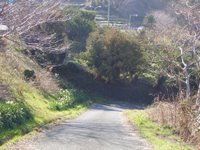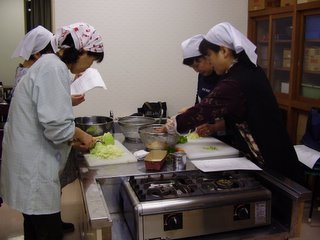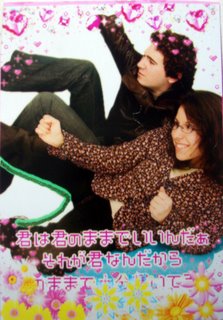 "Ken" (Left) = Sword
"Ken" (Left) = Sword"Do" (Right) = The way, the path
I'm not an expert. Seriously, not even close. In fact, I still can't even tie my headgear appropriately. And that stupid little bandana just drives me nuts...it constantly seems to slide off my head and into my eyes at the most inopportune moment, usually just seconds before I'm about to be clobbered on the head by an angry 13 year old chugakk-sei wielding a big stick.
So for several months now I've had what can only be described as a love-hate relationship with kendo. For those of you who don't know, Kendo is a Japanese martial art (sport) similar to fencing. Here is a brief explanation peppered with some Japanese terms for those of you practicing nihongo with me.
You get to wear cool armour like this:
Men (head), te (hands), and do (waist -left and right) are the only legitimate striking targets, although I'm told that extremely advanced kendokas (students of kendo) can also strike at the throat. The movements are combinations of quick slices and precise snaps with the sword, as well as thrusting/pushing with one's entire body, which developed from the swordplay of early samurai warriors. This sport is extremely fast-moving. Shinai (swords) are constructed from four pieces of bamboo held together by leather and string. Really doesn't sound like much till you take it on the head.
FYI - Did you know that the kanji for shinai is 竹刀?
Like all things Japanese, etiquette and ritual are central to kendo. I was shocked to learn that points are awarded on a number of different factors beyond the execution of proper technique, including:
- Posture - refers not just to good fighting stance but also to how you carry yourself in the dojo, how well you wear your uniform, etc.
- Kiai - yes, this is the screaming we do as we beat each other with aforementioned bamboo sticks; my sensei says I have great kendo potential because I have a "big mouth" (go figure!), but I prefer to translate this into "big voice" instead
- Zanshin (fighting spirit, alertness)
This is all significantly different from the other martial arts I have practiced in the past. Its also part of my attraction to the sport.
Now a note to all my fellow martial artists sitting at home, back in Chicago, reading this post...I know what you're thinking. Hey - aren't there any kicks in Kendo? Any punches? For the love of god, can't you even wrestle a person onto the ground and proceed to put them in an arm lock?!?!?!
No. Nope. Iie.
Why? Because kendo is not a self-defense system. Yes, I can feel the reverberation as you all collectively faint. And I'm expecting to take a certain amount of slack for this when I return home. I understand that I have debated, lectured, philosophised, ranted, and preached for ten years plus - until your eyes have glazed over with boredom, frustration, or perhaps even fear- against the efficacy of any martial art that does not have practical street applications. But they promise me that there are truly great things I can learn without all of that. Who knew?
And yes, I'm going to give it a go.
TO BE CONTINUED...









 Past the beautiful harbor, my favorite part of the trip...
Past the beautiful harbor, my favorite part of the trip...












